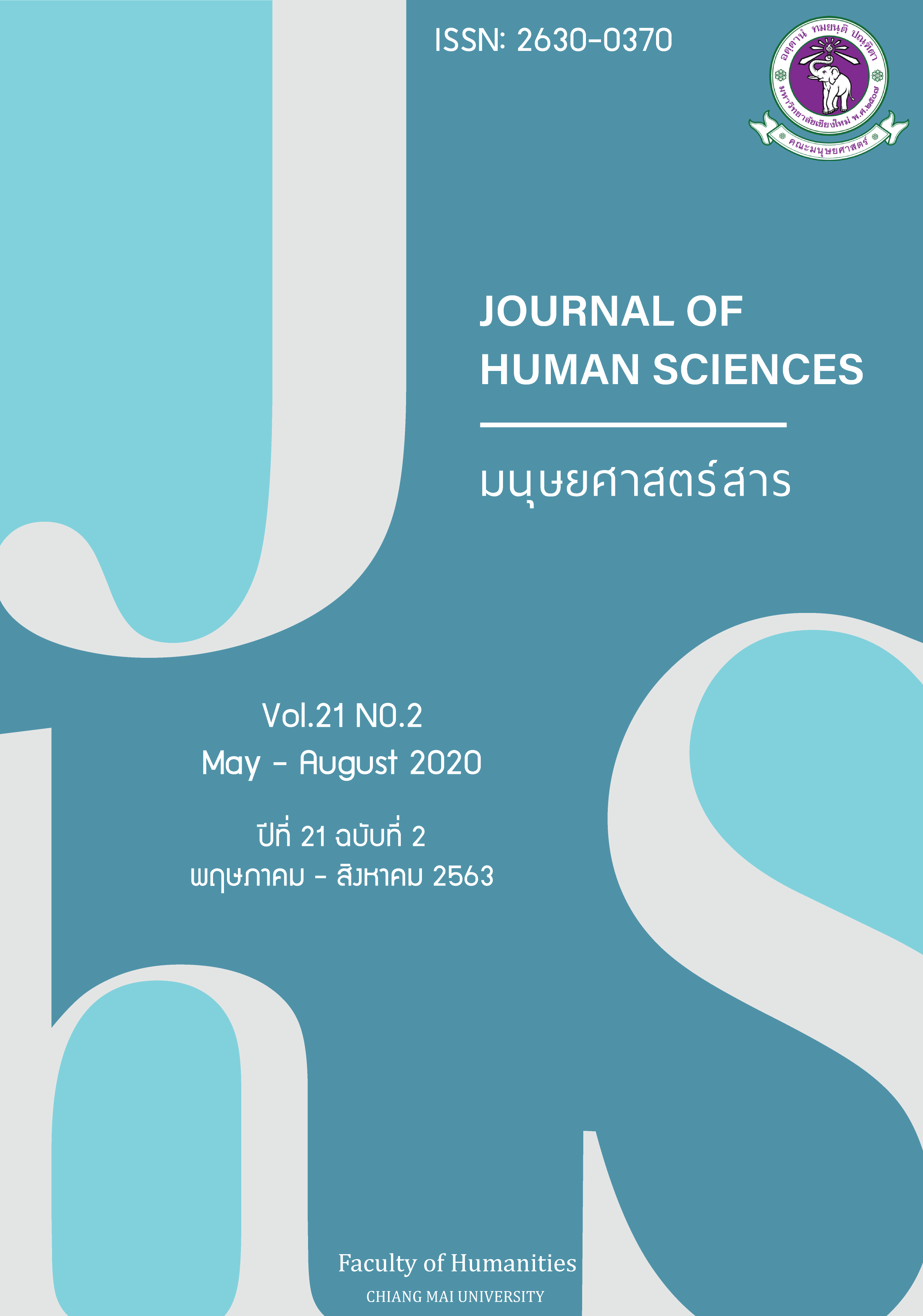นโยบายด้านทรัพย์สินทางปัญญาสำหรับสถาบันอุดมศึกษาในประเทศไทย
Main Article Content
บทคัดย่อ
สังคมยุคทรัพย์สินทางปัญญา อันมีทรัพย์สินทางปัญญาเป็นพื้นฐานสำคัญในการพัฒนาเศรษฐกิจของประเทศ สถาบันอุดมศึกษาในฐานะที่เป็นแหล่งรวบรวมองค์ความรู้ และผลิตผลงานทางวิชาการจำเป็นต้องมีการจัดการทรัพย์สินทางปัญญาที่มีศักยภาพเพื่อนำผลงานทางวิชาการไปใช้ประโยชน์ได้อย่างสมดุลทั้งในเชิงวิชาการและเชิงพาณิชย์ สิ่งสำคัญที่มีส่วนผลักดันให้การจัดการทรัพย์สินทางปัญญาประสบความสำเร็จ ก็คือนโยบายด้านทรัพย์สินทางปัญญาของสถาบันอุดมศึกษาที่มีความสอดคล้องกับบริบท สภาพแวดล้อมทางการวิจัยและเป้าประสงค์ของสถาบัน โดยนโยบายด้านทรัพย์สินทางปัญญาที่ดีจะต้องได้รับความร่วมมือจากผู้บริหารระดับสูงไปจนถึงบุคลากรและนักศึกษา และเป็นนโยบายที่สามารถปฏิบัติได้จริง
Article Details
เอกสารอ้างอิง
Caldera, A., & Debande, O. (2010). Performance of Spanish universities in technology transfer: an empirical analysis. Research Policy, 39(9). 1160-1173.
Carter, H., Snyder, C., & Imre, A. (2007). Library Faculty Publishing and Intellectual Property Issues: A survey of Attitudes and Awareness. Libraries and the Academy, 7(1). 65-79.
Chareonwongsak, K. (2007). The 5th Wave, Social Philosophy, Desirable Society in 21st Century. Bangkok: Success Media.
Clausen, H. (2004). Intellectual property, the internet and the libraries. New Library World, 105(1206/1207). 417-422.
Dai, Y., Popp, D., & Bretschneider, S. (2005). Institutions and intellectual property: the influence of institutional forces on university patenting. Journal of Policy Analysis and Management, 24(3). 579-598.
Downing, D. B. (2005). Academic Freedom as Intellectual Property: When Collegiality Confronts the Standardization Movement. Symploke, 13(1-2). 56-79.
Fine, C. R., & Castagnera, J. O. (2003). Should there be corporate concern?: Examining American university intellectual property policies. Journal of Intellectual Capital, 4(1). 49-60.
Fiscal Policy Research Institute. (2006). Final Report of Procurement for the Consultants of National Master Plan of Intellectual for Free Trade Negotiation. Bangkok: Fiscal Policy Research Institute.
Granstrand, O. (1999). The Economics and the Management of Intellectual Property. Cheltenham: Edward Elgar.
Hemaratchata, C. (2001). Characteristics of Intellectual Property Laws. Bangkok: P.J. Plate Processor.
Howkins, J. (2013). Creative Economy: How People Make Money From Idea. London: Penguin Books.
Intellectual Property Department. (2010). What is Intellectual Property. Retrieved from http://www.ipd.gov.hk/eng/intellectual_property.htm#01
Intellectual Property Office. (2007). Intellectual asset management for universities. Oxford: Intellectual Property Office.
Kelley, K. B., & McMichael, J. S. (2002). Intellectual Property, Ownership and Digital Course Materials : A Study of Intellectual Property Policies at Two-and Four-Year Colleges and Universities. Libraries and the Academy, 2(2). 255-266.
Kelley, K.B., Bonner, K., McMichael, J.S., & Pomea, N. (2002). Intellectual property, ownership and digital course material: a study of intellectual policies at two and four year colleges and university. Libraries and the Academy, 2(2). 255-266.
Khademi, T., & Ismail, K. B. (2013). Commercialization success factors of university research and development commercialization capability. Production & Manufacturing Research An Open Access Journal, 2(1). 586-602.
Kon, A. (2007). Intellectual Capital Management as Part of Knowledge Management Initiatives at Institutions of Higher Learning. Journal of Knowledge Management, 5(2). 181-192.
Kumar, S. & Ellingson, J. (2007). Adaptive IP strategies in China: a tactical analysis. Journal of Intellectual Capital, 8(1). 139-158.
Lucibella, C. (2010). File sharing and Ownership of Digital Objects: Intellectual Property According to Kant’s Theory of Possession. Theoretical & Applied Ethics (November 2010), 35-42.
Maesincee, S. (2007). Change of the Globe: New Definition of Wealth = Post knowledge based society. Bangkok: International Vintage.
Matkin, G. W. (1994). Technology transfer and public policy: lessons from a case study. Policy Studies Journal, 22(2). 371-383.
National Reform Steering Assembly. (2016). Report of Economic Reform Steering, National Reform Steering Assembly, Intellectual Property Reformation. Retrieved from http://waa.inter.nstda.or.th/stks/pub/2017/20170307-intellectual-property-system-report-3.pdf
Nelson, R. R. (1990). U.S. Technological leadership: where di d it come from and where did it come from and where did it go?. Research Policy, 19. 119-132.
Nollan, R. (2004). Campus intellectual property policy development. Reference Services Review, 32(1). 31-34.
Office of the Higher Education Commission, the Ministry of Education. (2008). The 2nd Long Term Higher Education Framework, 15 Years (2008-2022). Bangkok: Higher Education Policy Planning, Office of the Higher Education Commission.
Office of the National Economic and Social Development Board. (2016). 12th National Economic and Social Development Plan, 2017-2021. Retrieved from http://www.nesdc.go.th/ewt_w3c/ewt_dl_link.php?
Pinyosinwat, J. (2009). Rationale of Rights Protection in Intellectual Property. (Doctor of Laws Thesis, The Faculty of Law, Thammasat University).
Powell, W.W. & Owen-Smith, J. (1998). Universities and the market for intellectual property in the life science. Journal of Policy Analysis and Management, 17(2). 253-277.
Shimoda, R. (2005). Intellectual Property Management of National University Corporations. International Journal of Intellectual Property Law, Economy and Management, 1. 37-45.
Smith, G. V. (1994). The New Role of Intellectual Property in Commercial Transactions. NY: Wiley.
Tang, P., & Tunzelmann, V. (2000). Management, Governance and Intellectual Property: Electronic Publishing in the UK. Journal of Management and Governance, 4. 299-318.
The Department of Intellectual Property, the Ministry of Commerce. (2017). Annual Report 2018. Bangkok: the Department of Intellectual Property.
The Department of Intellectual Property, the Ministry of Commerce. (2005). Basic Knowledge in Intellectual Property. Bangkok: the Department of Intellectual Property.
The World University Rankings. (2020). World university rankings 2020. Retrieved from https://www.timeshighereducation.com/world-university-rankings/2020/world- ranking#!/page/0/length/25/sort_by/rank/sort_order/asc/cols/stats
Titu, M. A., Oprean, C., Stan, S., & Titu, S. (2017). The place and role of intellectual property policies in an advanced scientific research and education university. International conference knowledge-based organization, 1(23). 479-488.
Toffler, A. (1980). The Third wave. United States: Bantam Books.
U.S. News & World Report. (2020). Best global universities rankings. Retrieved from https://www.usnews.com/education/best-global-universities/rankings?page=4
UNCTAD. (2008). Creative economy report 2008. NY: United Nation.
UNESCO. (2013). Creative economy report 2013 special edition: widening local development pathways. Paris: United Nations/UNDP/UNESCO.
Von, H. (1988). Sources of innovation. NY: Oxford University press.
Wiputhanupong, C. (2009). The Management of Intellectual Property in Thailand University. Sripatum Parithat Journal, Humanities and Social Sciences, 9(1). 87-95.
World Intellectual Property Organization (2019c). Database of polices. Retrieved from https://www.wipo.int/about-ip/en/universities_research/ip_policies/
World Intellectual Property Organization. (2010). Guidelines on Developing Intellectual Property Policy for Universities and R&D Organizations. Retrieved from http://www.wipo.int/uipc/en/guidelines/pdf/ip_policy.pdf
World Intellectual Property Organization. (2019a). IP toolkit for universities and PRIs: IP policies. Retrieved from https://www.wipo.int/about-ip/en/universities_research/ip_policies/
World Intellectual Property Organization. (2019b). Universities and intellectual property. Retrieved from https://www.wipo.int/about-ip/en/universities_research/


